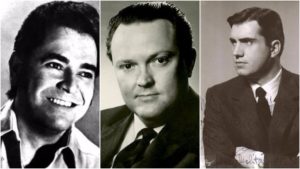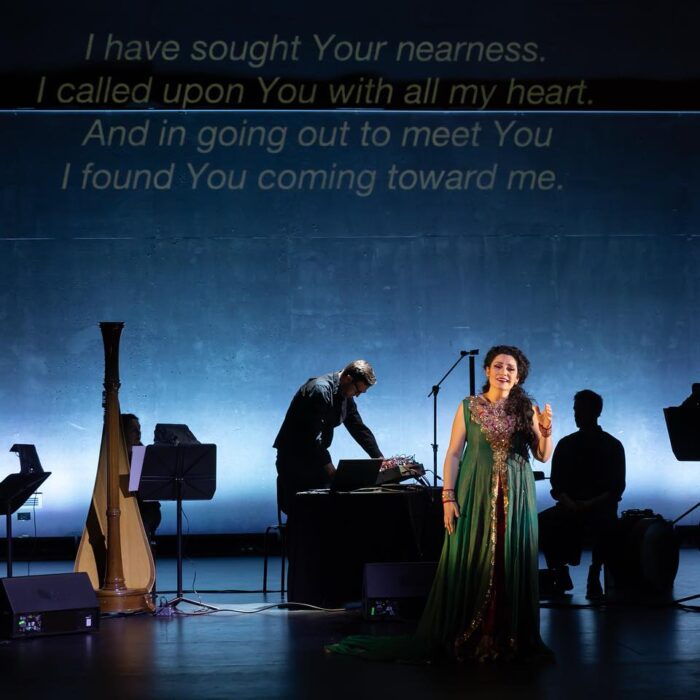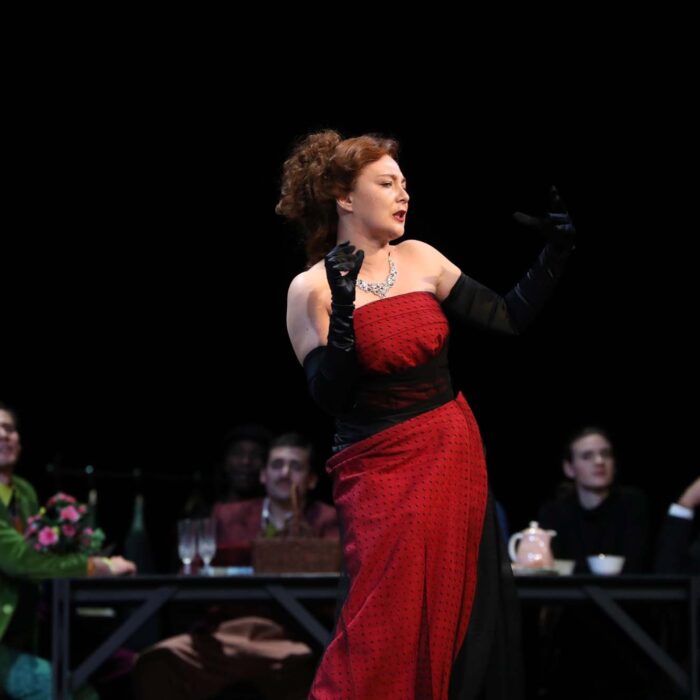
Ettore Bastianini, Cornell MacNeil, Pablo Elvira & 7 Baritone Roles They Shared
By David SalazarEttore Bastianini, Pablo Elvira, and Cornell MacNeil share a birthday – September 24. Two of these men, MacNeil and Bastianini were born on the same exact day.
All three were baritones, overlapping a ton of repertoire. Of the three, Elvira’s career is perhaps not quite up to the legendary status of the other two men, with Bastianini often crowned as the greatest baritone of all time, despite his career being cut short by an early death. MacNeil, of course, is not to be ignored, his own career lengthy, diverse and tremendously successful.
As you might anticipate, this list will look at the overlap in their careers from a repertoire perspective. It isn’t every day that three baritones share a birthday together. Here we go.
Rigoletto
Here’s where the fun begins, because not only do we start to see that these singers share the roles, but even famous debuts in said roles. Take MacNeil and Elvira for example. Both made their Metropolitan Opera debuts as the famous jester. In the case of Elvira, it was his final ever performance at City Opera in 1989. MacNeil would sing the role over 100 times at the Met.
Bastianini, of course, made one of the great recordings of the opera, which also stars Renata Scotto and Alfredo Kraus. MacNeil’s own interpretation has also been preserved for posterity.
La Traviata – Germont
Both MacNeil and Elvira made their New York City Opera debuts in this very role from Verdi’s middle period opera “La Traviata” in 1953 and 1974, respectively. Meanwhile, Bastianini made his Metropolitan Opera debut as the father of Alfredo in 1952.
Cavalleria Rusticana and Pagliacci
Here’s a fun story. On Oct. 15, 1979, MacNeil and Elvira sang in the famous double bill. While MacNeil sang as Alfio in “Cavalleria,” Elvira took on Tonio in “Pagliacci.” Of the five performances that season, that was the only one that the two men shared. The final performance of the run featured Elvira in both roles.
MacNeil did sing both roles in both operas, recording it in 1959 and 1960 for Decca Records. Bastianini’s interpretation of the Alfio is preserved in a recording that also stars Renata Tebaldi and Jussi Björling. He has recordings of the opening aria from “Pagliacci.”
La Forza del Destino – Don Carlo
That Bastianini and MacNeil were heralded interpreters of this role should come as no surprise, but that Elvira also got his chance to take on the role of Don Carlo in the middle-period Verdi work is quite surprising, considering its limited exposure in major theaters. But he actually took on the role once with the Metropolitan Opera, years after both of the other two men had taken it on.
La Bohème – Marcello
Of the three men, Elvira performed it more at the Met than the other two with a total of 17 performances. Bastianini came in second with 12 and MacNeil a distant third with just four. Interestingly, MacNeil never actually got to sing the role on the Met stage, all of his presentations coming on tour. Three of Bastianini’s came on tour while all of Elvira’s came at the house.
Ernani – Don Carlo
Another role that all three men took on, it is perhaps interesting that Bastianini never sang it at the Met, though he did appear frequently in the role throughout his later years. The other two men were fixtures in the role at the Met. Still, Bastianini managed to record the opera with Dmitri Mitropoulos at the podium and Mario del Monaco in the lead role.
Il Trovatore – Conte di Luna
Let’s get this out of the way – Bastianini is quite possibly the most famous interpreter of this role and his “Il balen del suo sorriso” is arguably the greatest single rendition of the gorgeous Verdi aria.
But that doesn’t mean the other two men couldn’t make their respective marks on the role. MacNeil actually sang it more often at the Met than Bastianini did in his career, while Elvira finished up his career at Bozeman, where he created an opera company, in the role in 1996.


